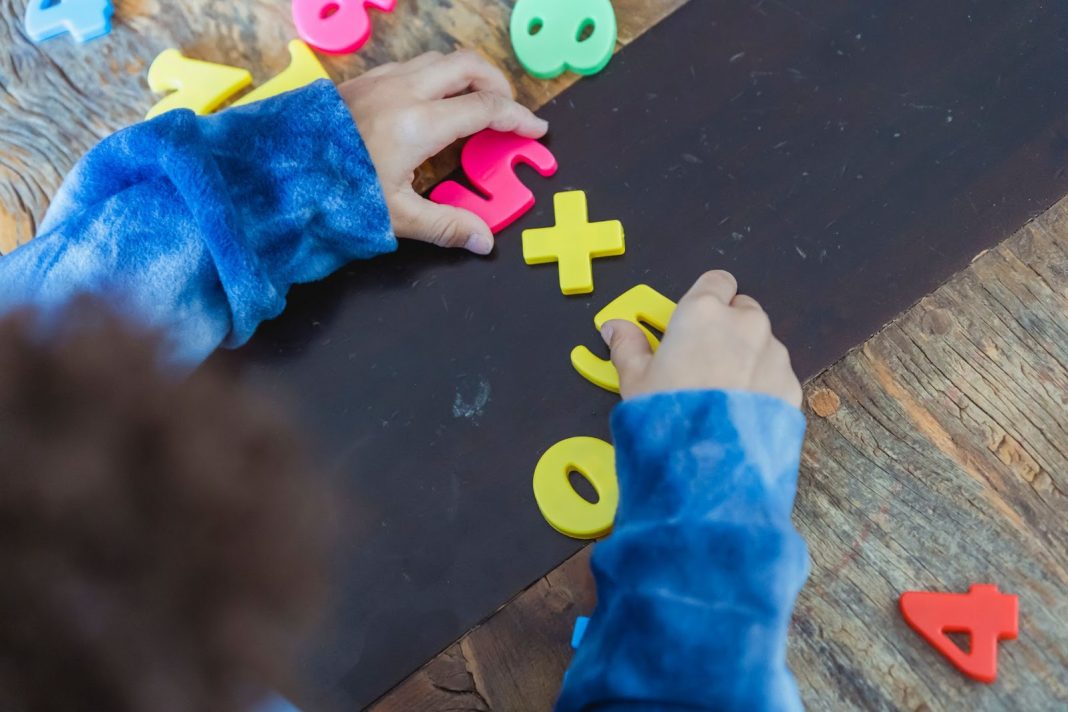Starting early with math concepts for preschoolers is essential for their success in life. Math is a fundamental skill that we use every day, from counting money to baking delicious treats. It’s crucial to lay a strong foundation for math skills during preschool when children are naturally curious and eager to learn.
Math & ELA | PreK To Grade 5
Kids see fun.
You see real learning outcomes.
Watch your kids fall in love with math & reading through our scientifically designed curriculum.
Parents, try for free Teachers, use for free
To tone down the complexity we have compiled a list of the top Pre-K math tips in this article, which will help your child learn math in a fun way. Before delving into the best tips, let us first understand the reasons why building early math skills for preschoolers is so important.
5 Reasons Why Building Early Math Skills at Preschool Age is Important
Preschool age is a critical time for the establishment of a robust foundation in math skills. It is of utmost importance to develop early math skills during this time as it has profound implications for a child’s academic and personal growth. Several reasons can be identified to underscore the significance of building early math skills at the preschool age, and we will explore some of these below.
“Teaching mathematics without engaging the child is like expecting a flower to grow without sunlight and water.” – Cathy Seeley.
1. Maths Skills Are Used for Everyday Life
Basic math skills are crucial for everyday life. Be it couting money or measuring ingredients while cooking, math skills are put to use for routine tasks. Therefore, developing pre-math skills can not only help them with success in future academics, but also prepare them for the world that’s around them.
2. Early Math Skills Can Help Predict Future Academic Success
According to a study, it is indicated that teaching math to preschoolers early on can lead them to academic success. Math is often used in a variety of academic subjects like science, technology, economics, and more. Thus, having strong math skills early on, help build a strong foundation which determine children’s success in their academic future.
3. Early Math Skills Help Develop Cognitive Function
Research suggests that early math skills help develop cognitive functions which includes reasoning, memory, semantic knowledge and fluency. Cognitive function is often linked to an individual’s success in the professional environment, which helps professionals to plan, control and manage a variety of tasks. Therefore, having a solid foundation in early math is critical for acheivement in school and in life.
4. Early Math Skills Make Learning Fun
A parent is often their child’s first teacher, but who said learning needs to be boring? You can make learning fun for your child by introducing fun games like counting things, sorting shapes and showing measurements while cooking. These simple activities at home can enhance your child’s early learning while making it fun at the same time.
5. Boost Your Child’s Cofidence With Early Math Skills
Early math skills can help boost a child’s confidence and self-esteem. Children who have a strong math foundation tend to feel more confident as they are equipped to comprehend and solve problems. This is often empowering and can be a rewarding experience for your child.
Related Reading: Reasons Why Math Is Important in Real Life
10 Best Pre-k Math Tips to Develop Math Skills
Developing early math concepts in pre-K children is essential for their academic success and everyday life. Math skills are necessary for problem-solving, decision-making, and understanding the world. Here are the best pre-K math tips to help develop math skills.
1. Introduce Numbers and Counting
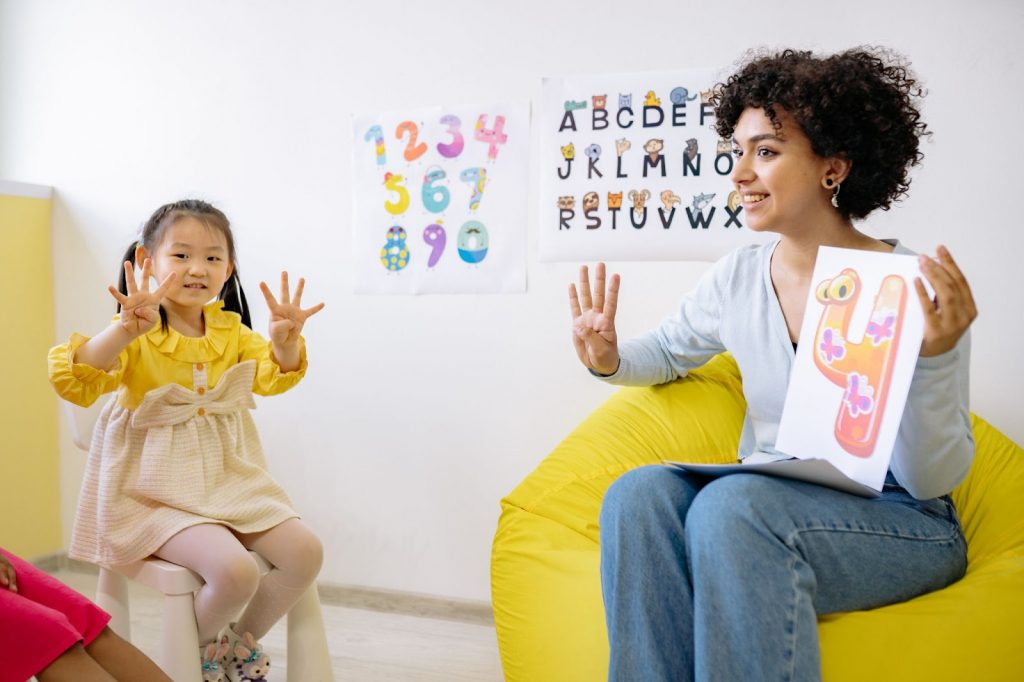
Introducing numbers and counting is an important first step in developing math concepts for preschoolers. It helps them to recognize and understand the concept of numbers and how they relate to quantities.
Here are five ways to introduce numbers and counting to pre-K children:
- Ask children to count toys, blocks, or snacks.
- Sing songs like “One, Two, Buckle My Shoe” or “Five Little Ducks” to reinforce number recognition.
- Read books focusing on numbers and counting, such as “Ten Apples Up On Top” by Dr. Seuss.
- Use fingers to count and reinforce number recognition.
- Use flashcards to teach numbers and number recognition.
Related Reading: What Are Numbers?
2. Use Everyday Objects

Including objects around can act as an effective tool to teach basic math concept to preschoolers. By including everyday objects, the child will not only be able to relate, but decode the complexities into simple solutions, while making it a fun learning experience. Doing this, can help your child in understanding math skills in a variety of domain like measurement, shapes and sizes, counting, etc.
Here are five approaches that leverage everyday objects to facilitate pre-K math instruction:
- Utilize measuring cups and spoons to provide an experiential understanding of measurement concepts.
- Integrate coins and bills into the educational process to facilitate the development of counting and money-handling skills.
- Incorporate kitchen scales to teach measurement and weight concepts in a hands-on manner.
- Introduce building blocks to enhance learners’ geometric understanding and spatial perception.
- Utilize toy cars or balls to provide experiential learning opportunities for measuring and determining distances.
3. Play Games
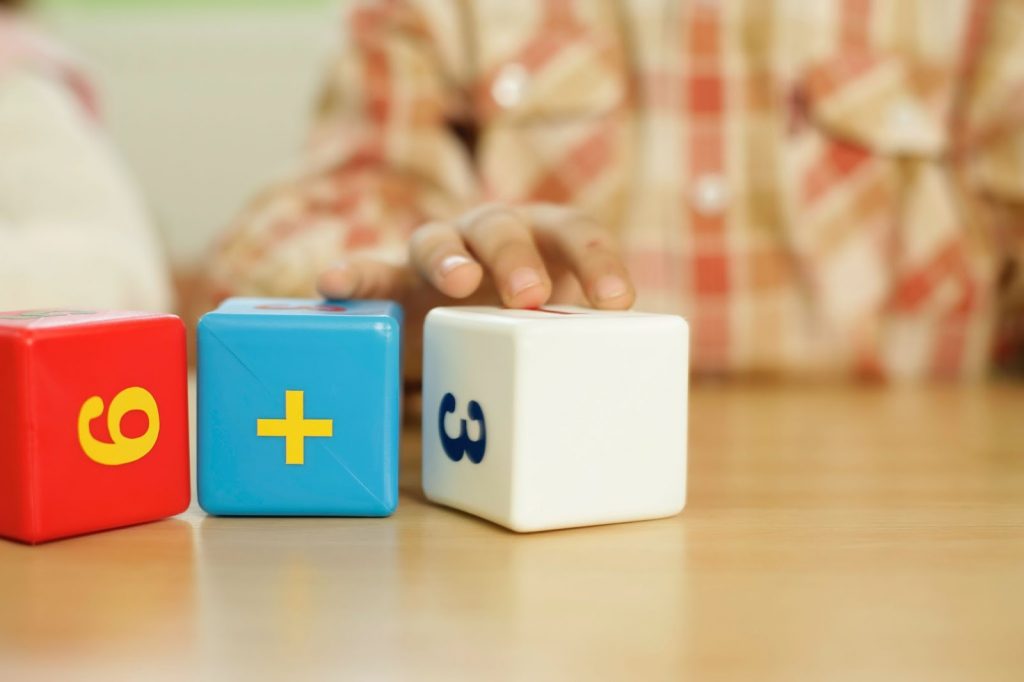
Playing games is a fun way to develop math concepts for preschoolers. Games allow children to practice counting, sorting, matching, and problem-solving playfully and engagingly.
Here’s how to play math games with Pre-K Children:
- Create bingo cards with numbers and have children match them to the corresponding numbers called out.
- Create a Memory Matching game with cards that have numbers, shapes, or objects on them.
- Play with dominoes to help children learn to count and recognize patterns.
- Use a Snakes and Ladders game board and dice to practice counting and taking turns.
- Play card games like Go Fish, where children can practice matching and sorting cards.
4. Make Math Fun
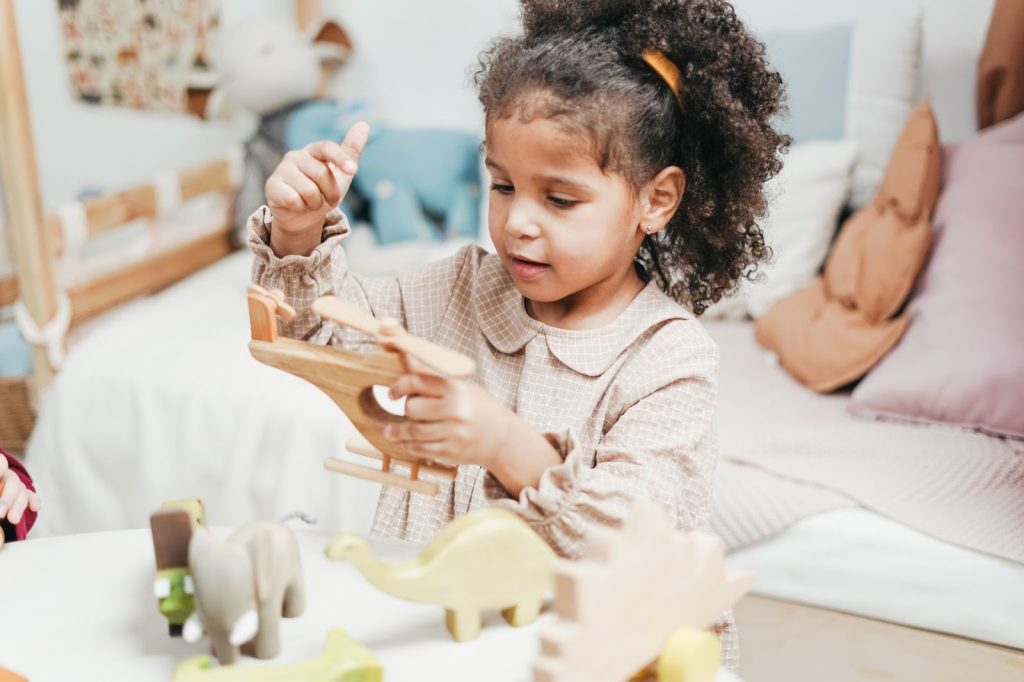
Making math fun for pre-K children is important as it can increase their engagement and motivation to learn. When children enjoy learning math, they are more likely to retain the information and develop a positive attitude toward math.
Here are five ways to make math fun for pre-K children:
- Use colorful manipulatives like counting bears, blocks, and puzzles.
- Incorporating movement into math activities, such as hopscotch or jumping jacks.
- Creating interactive games like scavenger hunts or math treasure hunts can also make learning more enjoyable.
- Playing pretend store or restaurant and using play money to teach counting and basic math operations is yet another excellent way to engage children.
- Using art activities like drawing, painting, and collage to teach math concepts can spark creativity and boost interest in learning.
Related Reading: Ways to Make Math Fun
5. Use Technology
Technology is an important part of our daily lives from educational apps to websites that focus on skills development for kids. There are serval resources available digitally that can make learning math fun and interactive. The following are four ways to use technology to teach math concepts to pre-K children:
- Allow children to practice math concepts digitally through worksheets.
- Use math videos or tutorials that provide visual explanations of math concepts.
- Use free math games on interactive whiteboards or projectors to teach group lessons.
- Use math-themed podcasts or audiobooks that teach math concepts through storytelling.
6. Read Math Books
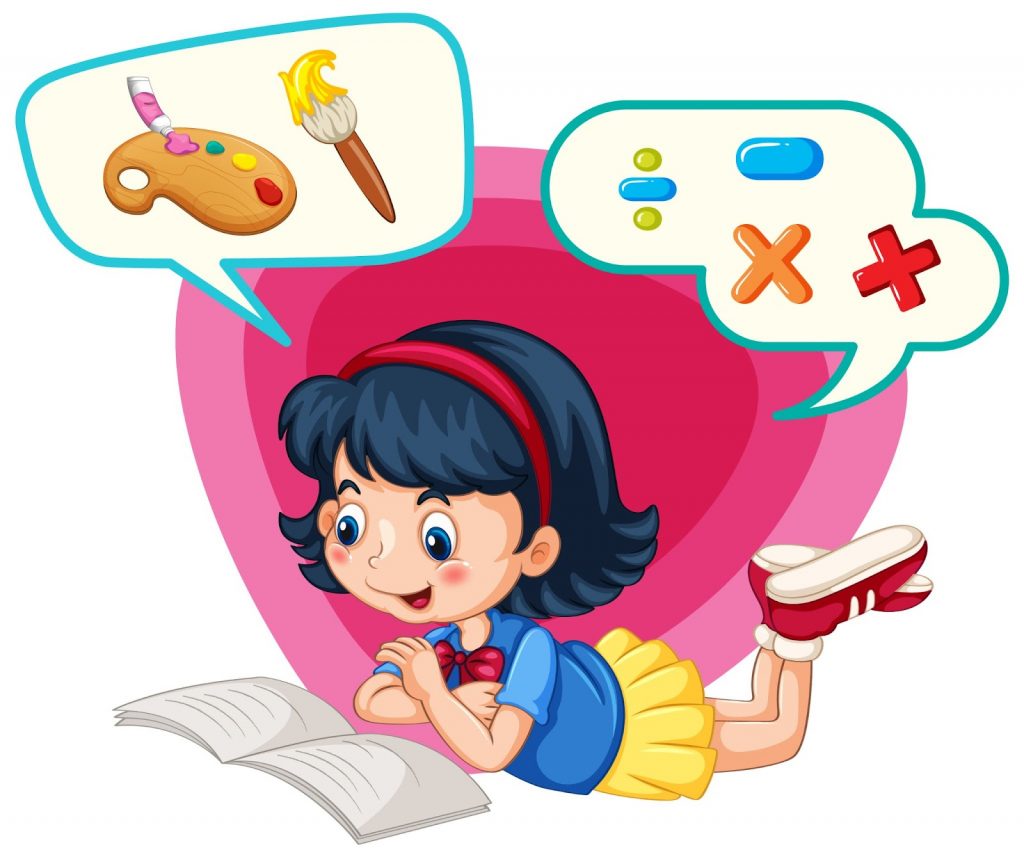
Reading math books is a great way to introduce and reinforce math concepts for preschoolers. Math books provide a fun and engaging way to learn math and help children develop early literacy skills.
“Once you learn to read, you will be forever free.” – Frederick Douglass
Here are five ways to incorporate reading math books into your pre-K child’s routine:
- Read a math-themed book before bed each night.
- Have a math-themed storytime at the library or bookstore.
- Use math books as a reward for completing math activities.
- Encourage children to act out math stories using toys or puppets.
- Use math books as a conversation starter during meal times.
Related Reading: Best Math Books For Kindergarten that Kids Will Definitely Enjoy
7. Teach Patterns
Teaching patterns is an essential pre-K math tip that helps develop math skills in children. Patterns help children understand and recognize sequences, which are important for later math concepts like addition and multiplication. Here are five ways to teach patterns to pre-K children:
- Use manipulatives like blocks, buttons, or beads to create patterns.
- Draw patterns on paper and ask children to continue the pattern.
- Play pattern games like “What Comes Next?” where children must predict the next item in a pattern.
- Use nature objects like leaves, stones, or flowers to create patterns.
- Use patterned cloth or wallpaper to create a sensory experience.
8. Introduce Basic Shapes
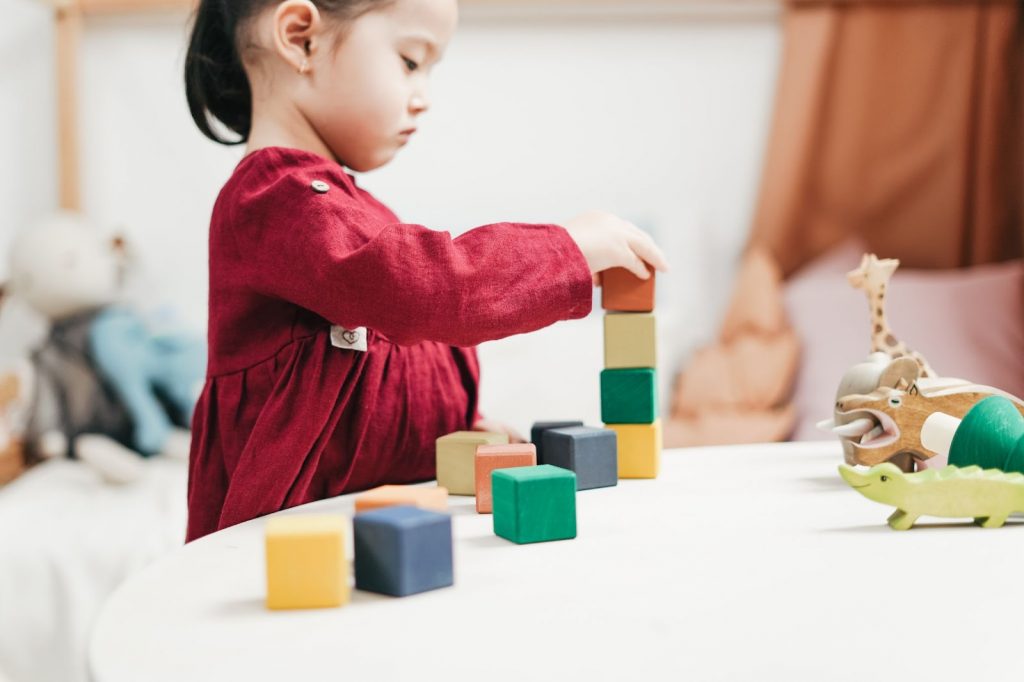
Introducing basic shapes is important in developing math concepts for preschoolers. Learning about shapes helps children understand spatial relationships and develop visual discrimination skills. It also lays the foundation for learning geometry in later years.
Here are five ways to introduce basic shapes to pre-K children:
- Encourage children to identify conditions in everyday objects like traffic signs, buildings, and toys.
- Cut out shapes from colored paper and encourage children to create collages.
- Use shape blocks or cut-out shapes from cardboard to build towers, houses, or other structures.
- Use paper, crayons, or chalk to draw different forms and have children identify them.
- Use different cut vegetables and toppings shapes to create pizzas with other forms.
Related Reading: What are Shapes?
9. Talk About Math
Talking about math with pre-K children is an effective way to develop their math skills. When children are encouraged to think about math concepts and explain their thinking, they are more likely to retain and apply the information in different situations.
The following are the 5 Ways to Talk About Math with Pre-K Children:
- Ask children to count objects around the house or during a walk outside.
- Encourage children to explain how they solved a math problem.
- Talk about the shapes of objects around the house or in nature.
- Discuss natural patterns, like the stripes on a tiger or the rings on a tree trunk.
- Encourage children to estimate quantities, like how many crackers are in a box.
10. Introduce Timers To Teach a Sense of Time
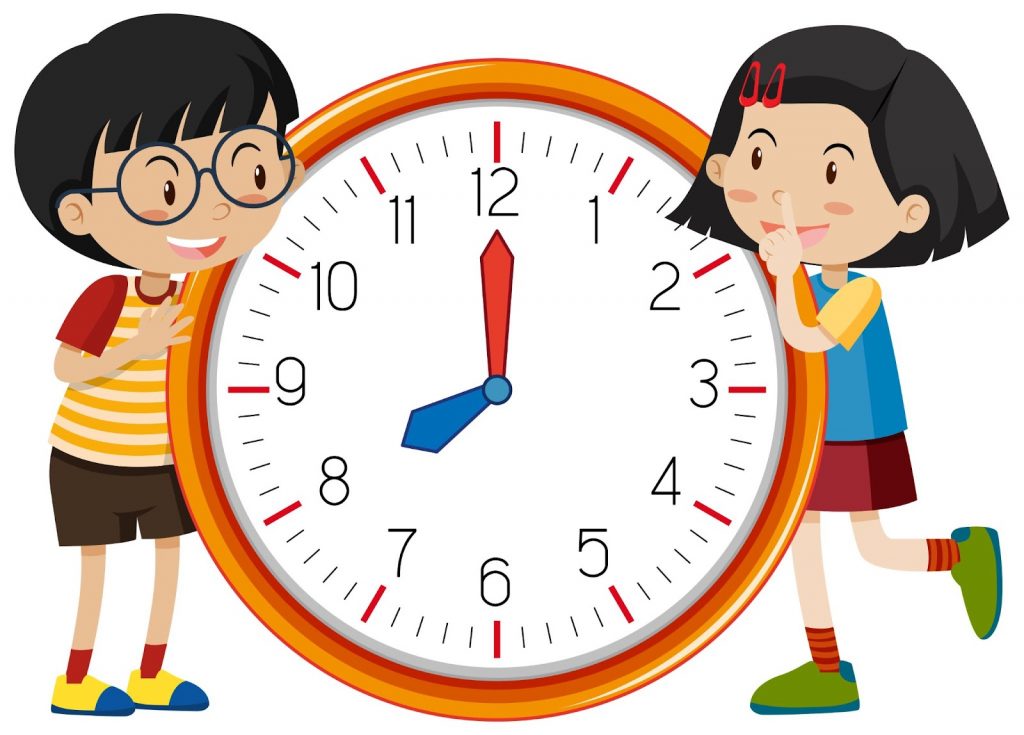
You can user a timer for activities like watching tv or playing a video game, so your child can become familiar with the concept of time and how long does each unit last. For example, if your child doesn’t want to stop watching TV, you can tell them that they have five more minutes. This will help them get a sense of how long five minutes last. Setting a timer for different activities will enable your child to get an understanding of different time units and the concept of time.
The following are the 5 ways to teach your children the concept of time:
- Tell them about a fun activity you will do together at a particular time. For example: You can say that you will do gardening at 5 PM in the evening.
- Tell your child that you will give them food at a particular time, so can start associating the time with a particular activity. For example: Breakfast at 9 AM, Lunch at 2 PM and dinner at 7 PM.
- Engage in the passing of time. For example: 10 minutes left to finish your art.
Boost Your Child’s Early Math Skills For Math Success
Investing time and effort in early math education of pre-K children is crucial for their academic success and personal growth. It allows them to lay a strong mathematical foundation and helps with problem-solving, decision-making, and understanding the real world. Indulging children in interactive activities like reading, counting, using technology, patterns, shapes, and measurements can foster their academic success. By following the above-mentioned pre-K math tips, parents can help boost confidence in children by encouraging math learning and ensuring their long-term achievements.
Frequently Asked Questions (FAQs)
What are the mathematical concepts of early childhood?
The mathematical concepts of early childhood include number recognition, one-to-one correspondence, sorting, classifying, and comparing objects based on attributes.
Should Preschool Education Focus Solely on Math or Include Other Subjects?
While math is undoubtedly important for preschoolers, it’s equally vital to offer a comprehensive education that includes reading, science, and social studies to provide a well-rounded foundation.
What can I do to continue developing my child's math skills beyond the preschool years?
Encourage your child to continue practicing math skills through games, puzzles, and other fun activities. Consider enrolling them in extracurricular activities or summer camps focusing on math and science.

















